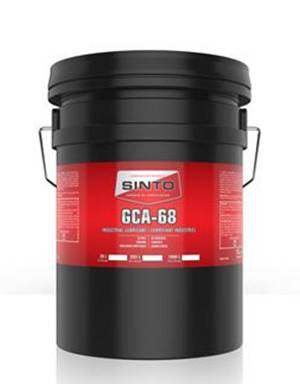ਜਨਃ . 02, 2025 14:37 Back to list
pvc pipe for lawn irrigation
PVC Pipe for Lawn Irrigation A Comprehensive Guide
When it comes to maintaining a lush and vibrant lawn, proper irrigation is essential. One of the most effective and commonly used materials for lawn irrigation systems is PVC (Polyvinyl Chloride) pipe. This versatile material has gained popularity due to its durability, affordability, and ease of installation. In this article, we will explore the benefits of using PVC pipe for lawn irrigation, discuss the installation process, and highlight some tips to ensure a successful irrigation system.
Benefits of PVC Pipe
1. Durability and Longevity PVC pipes are renowned for their strength and resistance to corrosion, making them ideal for underground irrigation systems. Unlike metal pipes, PVC does not rust or corrode when exposed to moisture, which ensures a longer lifespan for your irrigation setup.
2. Cost-Effective PVC pipes are relatively inexpensive compared to other materials like copper or galvanized steel. This makes them an attractive option for both residential and commercial landscaping projects, allowing you to save money while effectively watering your lawn.
3. Easy Installation The installation of PVC pipes is straightforward and can often be done by DIY enthusiasts. The pipes are lightweight, making them easy to handle and maneuver. Additionally, they can be connected using solvent cement, which creates a strong bond without the need for specialized equipment.
4. Versatility PVC pipes come in various diameters and lengths, allowing for flexibility in designing your irrigation system according to the specific needs of your lawn. Whether you need to cover a small garden or a large yard, there is a PVC pipe size that will suit your requirements.
5. Low Maintenance Once installed, a PVC irrigation system requires minimal maintenance. The pipes are resistant to algae growth and are less likely to become clogged than other materials. Regular checks to ensure there are no leaks will keep your system running efficiently.
Installation Process
Installing a PVC pipe irrigation system involves several steps
pvc pipe for lawn irrigation

1. Planning Your System Before you begin, map out your lawn and determine how much water each area needs. Consider factors such as sun exposure, plant types, and soil conditions, which will affect your irrigation needs.
2. Gathering Materials You will need PVC pipes, fittings (e.g., elbows, tees), connectors, and solvent cement. A cutter or saw for PVC, a measuring tape, and a level are also essential tools for the installation.
3. Trenching Dig trenches along the planned irrigation route. The depth of the trench should be sufficient to bury the pipes and protect them from damage, typically about 12 inches.
4. Cutting and Fitting Pipes Cut the PVC pipes to the desired lengths and assemble them using the fittings. Ensure to dry-fit the components before cementing them to confirm everything is aligned correctly.
5. Cementing the Connections Once satisfied with the layout, apply PVC solvent cement to the ends of the pipes and the insides of the fittings. Push the pieces together firmly, wipe off excess cement, and give them time to cure as per the manufacturer's instructions.
6. Testing the System After installation, turn on the water to check for leaks and ensure that the irrigation system distributes water evenly. Make any necessary adjustments to the pipes or fittings as needed.
Tips for Success
- Regular Maintenance Although PVC pipes require minimal maintenance, it is still essential to check your irrigation system regularly for clogs, leaks, and overall performance. - Seasonal Adjustments Adjust your irrigation schedule based on seasonal changes and rainfall to prevent overwatering or underwatering. - Utilize Drip Irrigation For gardens with specific watering needs, consider incorporating drip irrigation systems using PVC pipes, as they provide efficient and targeted watering.
In conclusion, PVC pipes are an excellent choice for lawn irrigation systems due to their durability, affordability, and ease of installation. By understanding the benefits and following the installation tips mentioned above, you can create a reliable irrigation system that will keep your lawn healthy and thriving for years to come.
-
HDPE Steel Belt Reinforced Spiral Corrugated Pipe | High Strength
NewsAug.17,2025
-
HDPE Pipe Fittings: Durable, Leak-Proof Solutions
NewsAug.16,2025
-
Premium CPVC Sheet: High-Temp & Chemical Resistant Solutions
NewsAug.15,2025
-
Durable PPR Pipe for Hot & Cold Water Systems - Easy Install
NewsAug.14,2025
-
Durable HDPE Sheet | Versatile & Impact-Resistant Plastic
NewsAug.13,2025
-
Premium PVC Soft Sheets: Clear, Flexible & Durable
NewsAug.12,2025

